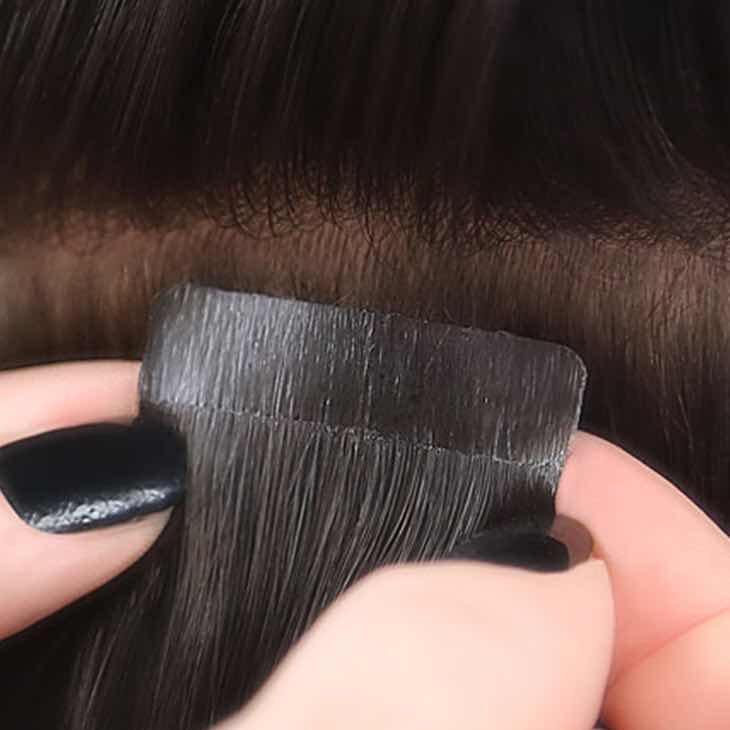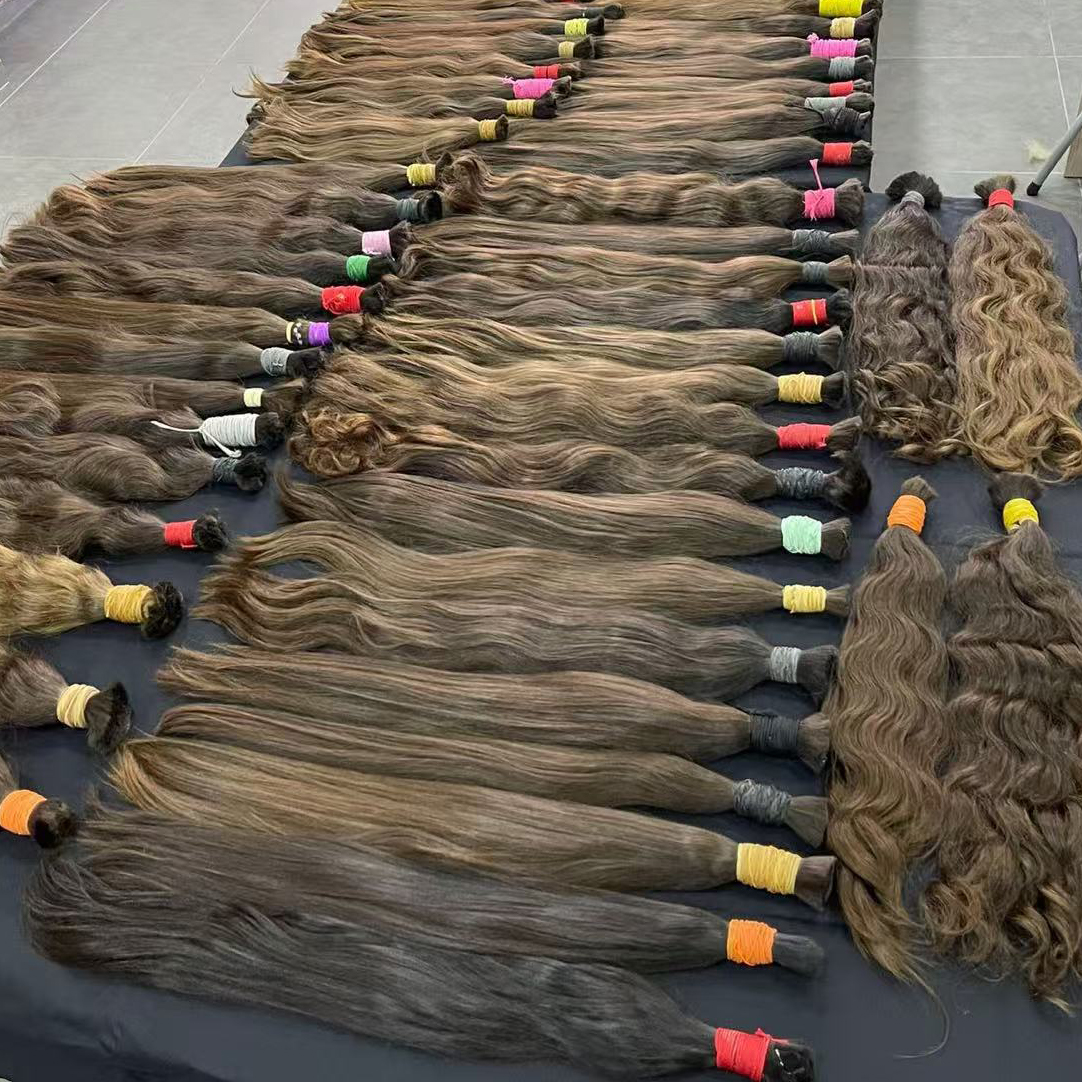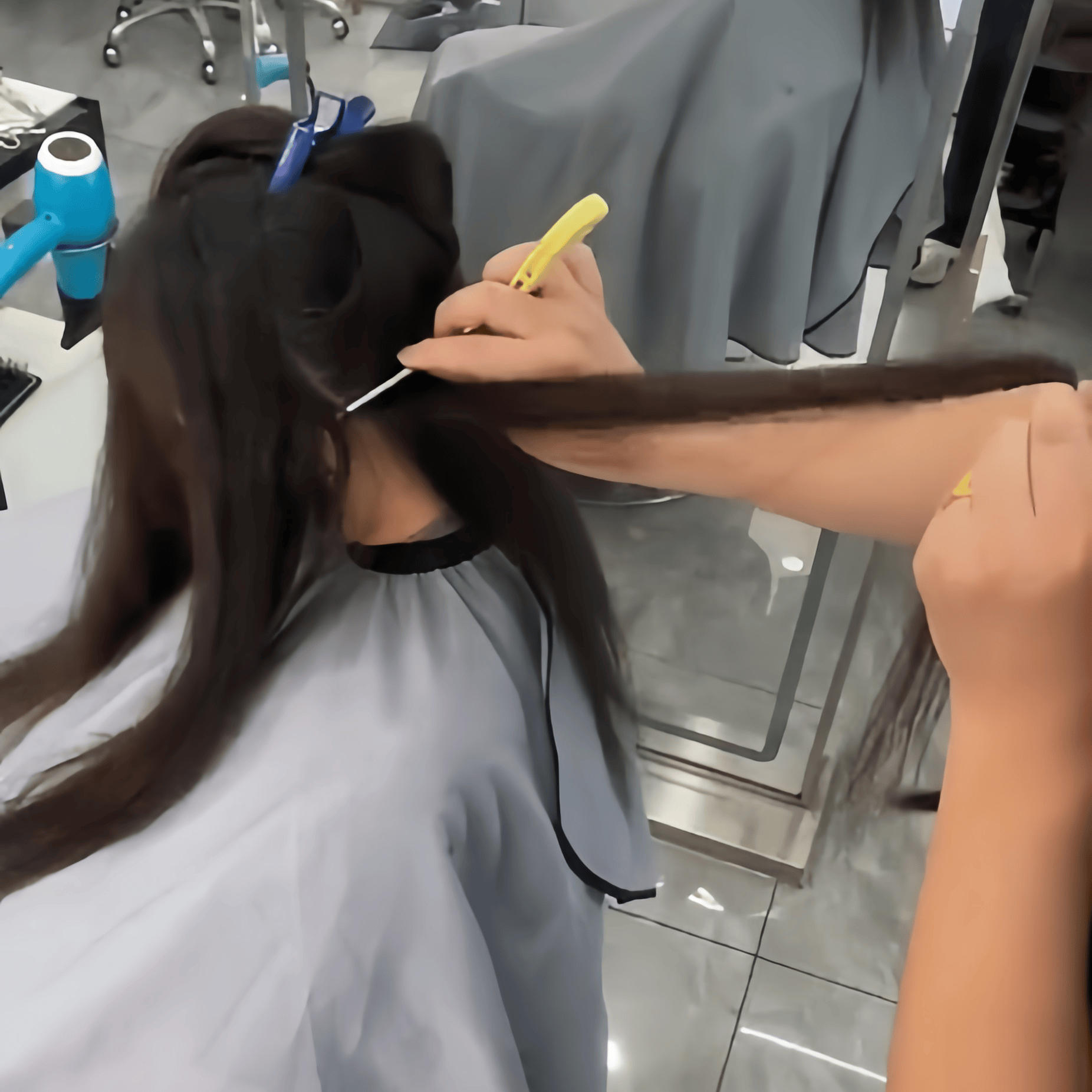The Complex Landscape of Hair Extension Certifications: Understanding What Truly Matters
There is no single, comprehensive list of certifications and standards for all hair extension products, but common certifications focus on ethical sourcing (like Fair Trade1) and quality control (such as ISO certification2), while product-specific standards may exist for chemical safety (EWG Verified3) or company-wide practices (B Corp). For hair extensions, certifications are primarily focused on the source of the hair and how it is applied, rather than the product itself.
This reality may seem confusing to salon owners seeking to navigate the labyrinth of certifications. But fear not! Understanding the landscape requires a robust examination of existing certifications and their implications. By focusing on what truly impacts product quality and ethical sourcing, brands like mine—Plucharm Hair—have carved a trustworthy niche in the market.
What Qualifications Do You Need to Fit Hair Extensions?
Anatomy of Hair Extension Expertise
Installing hair extensions might seem simple, but doing it effectively requires a blend of skill, artistry, and technical knowledge. A question I frequently encounter is: "What qualifications do you need to master this skill?" Let's dive deeper.
Dive Deeper
To become a successful hair extension specialist, you're expected to have a robust foundation in cosmetology or a closely related field. This entails understanding scalp health, hair types, and how various hair extensions interact with different types of natural hair.
Key Certifications:
- Cosmetology License4: Often mandatory for practicing professionally.
- Specialized Extension Courses5: Focused training on specific methods like PU tape-in or hand-tied wefts, a staple at Plucharm Hair.
Comparative Analysis:
| Qualification | Importance Level | Certification Needed |
|---|---|---|
| Basic Cosmetology Degree | High | Cosmetology License4 |
| Specialized Extension Training | Very High | Brand-Specific Certificates |
| Continued Education | Medium | Optional Refreshers |
Personal story: I once mentored a struggling stylist whose business skyrocketed after honing her skills through specialized courses. It reinforced my belief that expertise is crucial for standing out.
Pro Tip: Stay ahead by enrolling in courses that align with the latest technological advancements in hair extensions.
What is the Gold Standard for Hair Extensions?
Setting the Bar High
In an industry besieged by various quality claims, identifying the "gold standard" involves understanding both product attributes and ethical implications.
Dive Deeper
At Plucharm Hair, we define gold-standard extensions as those that exemplify superior quality, durability, and ethical sourcing.
Key Attributes:
- 100% Virgin Hair6: Known for its longevity and natural aesthetics.
- Eminent Craftsmanship7: Techniques like hand-tied weft crafted by industry veterans.
- Ethical Sourcing8: Fair Trade certifications9fairtradecertified.org/what-we-do/what-we-certify/)1 certifications ensure ethical labor practices.
The Plucharm Advantage:
Our dedication to excellence allows partners to directly access top-tier products, ensuring that salon owners can confidently serve their clientele with the best.
Did You Know? Gold-standard extensions can last over two years with proper care, offering exceptional value and client satisfaction.
Do I Need a Cosmetology License4 to Do Hair Extensions?
Navigating Legal Waters
Is a cosmetology license mandatory for fitting hair extensions? The answer often boils down to regional regulations and the level of professional recognition you aim to achieve.
Dive Deeper
For many jurisdictions, a basic cosmetology license acts as the gateway to professional practice. It ensures that stylists adhere to hygiene standards and are knowledgeable about scalp health, both of which are critical for extensions.
Why a License?
- Professional Legitimacy: Builds client trust.
- Legal Compliance: Avoids potential fines.
In contrast, freelance stylists may prioritize practical skills or brand-specific training over formal credentials, especially in locations with lenient regulations.
Case Study: A salon I collaborated with initially hesitated to hire licensed stylists, seeing it as an unnecessary expense. Feedback from discerning clients, however, revealed that perception shifted positively once licensed experts joined their team.
Expert Insight: Always prioritize local laws and client expectations when assessing the need for a cosmetology license.
How Are Hair Extensions Sourced?
From the Ground to Glamour
Sourcing options can make all the difference in maintaining the integrity and ethicality of hair extensions. This aspect is particularly dear to me and Plucharm Hair’s philosophy.
Dive Deeper
Sourcing is not merely about securing raw materials but ensuring dignity and fairness at each stage of the supply chain.
Ethical Considerations:
- Fair Trade1 Certification: Assures ethical labor practices.
- Transparency in Transactions10: Ensures no exploitation during collection.
Desirable extensions like the ones at Plucharm are created from virgin hair, known for its sustainability and quality. With over 30 years in raw material procurement, it’s a priority for us to guarantee ethical standards.
IMAGE_PLACEHOLDER: Example of ethically-sourced hair ready for processing.
For those like Aisha, the chain salon owner pain point is maintaining consistent quality—highlighted by our transparent sourcing practices at Plucharm. Her transitions from fluctuating suppliers to us were smoothed by understanding these sourcing intricacies.
Actionable Advice: Ask potential suppliers for detailed sourcing transparency to ensure quality and ethical practices.
Conclusion
Navigating the complexities of hair extension certifications isn't just a check-box exercise—it's about embracing quality, ethics, and the mastery of your craft. As an industry expert and the force behind Plucharm Hair, I advocate for salon owners to demand not just robust products but also guarantees of ethical product lifecycles. Let us remember that empowering clients through exceptional extensions begins with making informed, conscientious choices.
In an ever-evolving marketplace, staying informed and demanding the best is not just a luxury; it’s the gold standard. Whether you're a salon owner like Aisha or a budding stylist, understanding these integral components is key to unlocking success.
-
Explore how Fair Trade certification ensures ethical labor practices in the hair extension industry. ↩ ↩ ↩
-
Learn about ISO certification and its importance in maintaining quality standards for hair extensions. ↩
-
Discover how EWG Verified certification ensures chemical safety in hair extensions. ↩
-
Find out the legal requirements for fitting hair extensions and the importance of a cosmetology license. ↩ ↩ ↩
-
Learn about specialized courses that enhance skills in hair extension application and techniques. ↩
-
Understand the benefits of using 100% virgin hair for quality and durability in extensions. ↩
-
Explore the significance of craftsmanship in creating high-quality hair extensions. ↩
-
Discover the importance of ethical sourcing practices in ensuring quality and sustainability. ↩
-
Learn how Fair Trade certifications promote ethical labor practices in hair sourcing. ↩
-
Understand how transparency in transactions ensures ethical practices in the hair extension supply chain. ↩




